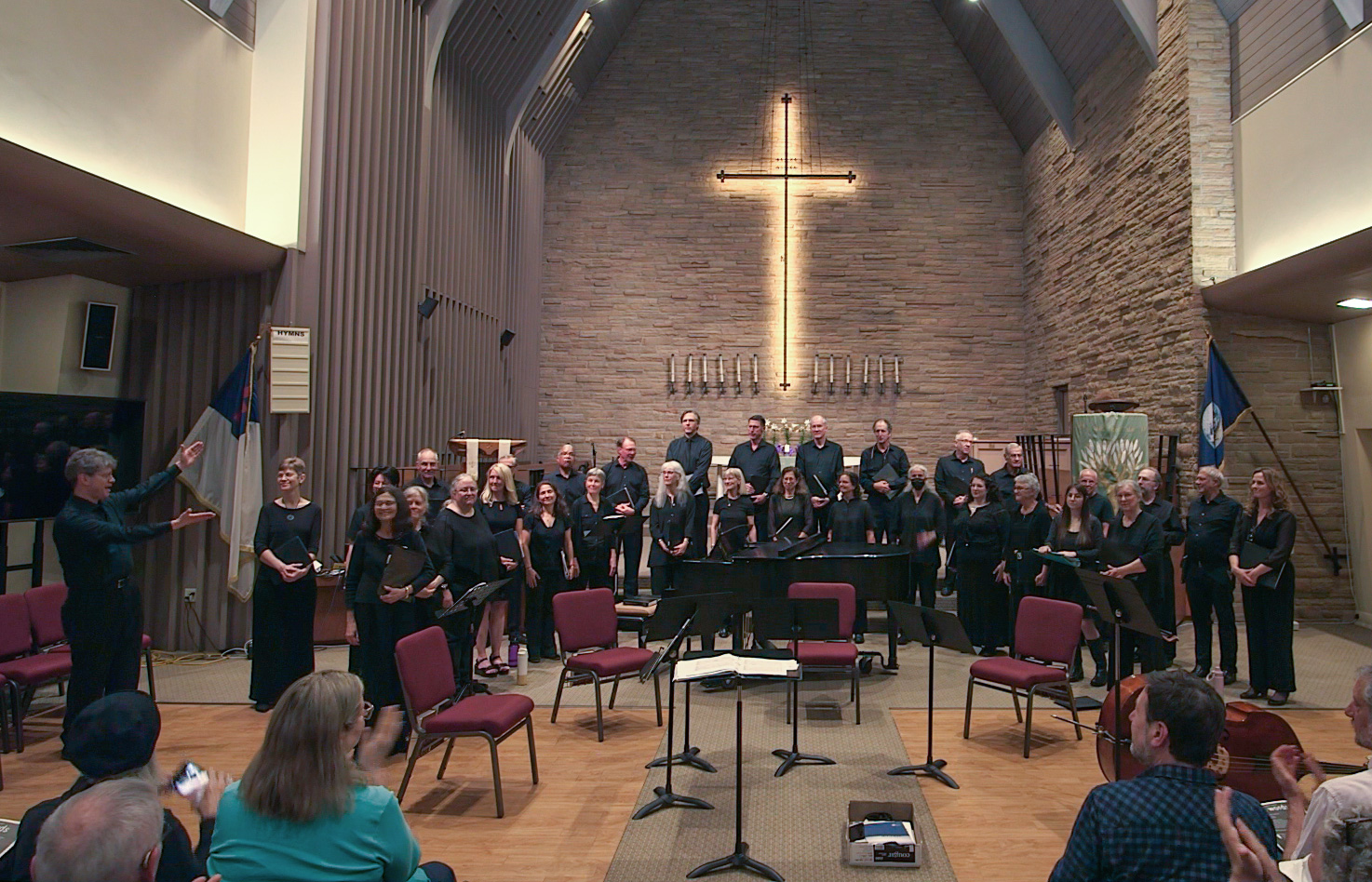

Pioneer Valley Cappella is an auditioned forty-voice chamber chorus based in Northampton, Massachusetts that has been performing locally for more than forty years. Local composer Geoffrey Hudson conducts.
For more details, visit our About page.

Pioneer Valley Cappella, Geoff Hudson, conductor, presents "The Fruit of Silence," choral meditations on peace. Concerts will take place in Northampton and South Hadley, 7:30 pm, Friday, May 8 and Saturday, May 9. Rehearsals are Thursdays 7:30-9:30 pm at the Northampton Community Music Center. We will audition all voice parts in January. To schedule an audition, email Geoffrey Hudson.